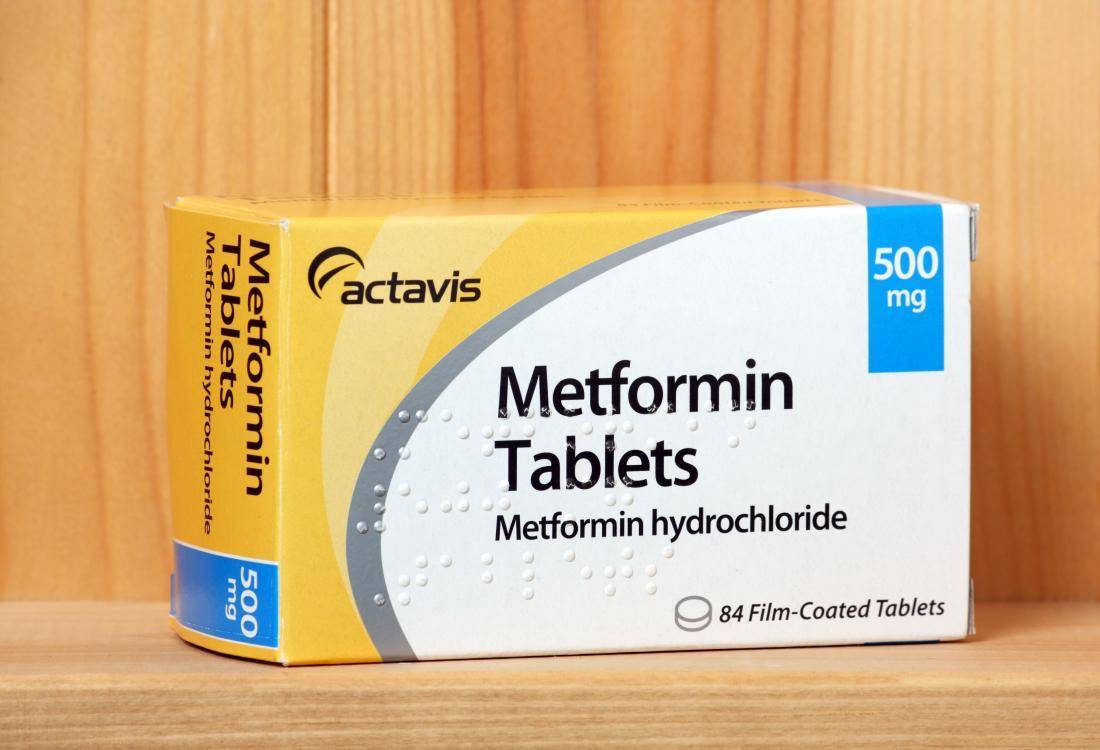Unlocking the Secrets of Metformin: A Weight Loss Journey
As the quest for effective weight management continues to captivate the attention of health enthusiasts adn researchers alike, one medication has emerged from the shadows of diabetes treatment to pique the interest of dieters everywhere: metformin. Initially celebrated for its role in improving insulin sensitivity and regulating blood sugar levels, this oral medication is now gaining recognition for its potential benefits in promoting weight loss. With an increasing number of individuals seeking solutions to obesity and its associated health risks, the discussion around metformin’s weight loss properties has become more relevant than ever. In this article, we will explore the intriguing connection between metformin and weight loss, examining the science behind its effects, the experiences of users, and what this means for the future of weight management strategies. Join us as we delve into the multifaceted world of metformin, seeking to understand its promise and pitfalls on the journey toward a healthier weight.
Table of Contents
- Understanding Metformin and Its Role in Weight Management
- The Science Behind Metformin’s Impact on Appetite Regulation
- Exploring the Weight Loss Benefits for Individuals with Diabetes
- Metformin for Non-Diabetics: Potential Weight loss Advantages
- dosage Guidelines and Recommendations for Safe Use
- Dietary Strategies to Enhance Metformin’s Weight Loss Effects
- Monitoring and Managing side Effects During Treatment
- Real-Life Success Stories: Metformin and Sustainable Weight Loss
- Consulting Healthcare Professionals: The Importance of Personalized Plans
- Future Research Directions on Metformin and Weight Loss
- Empowering Lifestyle Changes for Long-Term Weight Management
- Q&A
- In Retrospect

Understanding Metformin and Its Role in Weight Management
Metformin, a medication primarily used to manage type 2 diabetes, has garnered attention for its potential role in aiding weight management.While its primary function is to lower blood sugar levels, studies have shown that Metformin can also lead to modest weight loss in some individuals. This effect is particularly noticeable in people with insulin resistance or those who are overweight, providing an intriguing secondary benefit that extends beyond glucose control.
One of the mechanisms through which Metformin facilitates weight loss is by influencing appetite regulation. It is believed to act on the brain’s hunger centers to promote feelings of satiety,leading individuals to consume fewer calories. This makes it an appealing option for those who struggle with obesity-related challenges.Moreover, Metformin may alter the gut microbiome, promoting a healthier balance of bacteria that are integral to digestion and metabolism.
In clinical studies, the average weight loss associated with Metformin varies from 3 to 5 kg over a sustained period. This can be particularly notable for individuals looking to improve their health outcomes, as even a small percentage of weight loss can lead to enhanced insulin sensitivity and reduced risks of diabetic complications. Individuals considering Metformin for weight management should weigh the potential benefits against other lifestyle changes, such as diet and exercise, to maximize results.
It’s vital to note that not everyone experiences weight loss with Metformin, and the degree of effectiveness can differ widely among individuals. Factors influencing this variance include genetic predispositions, dietary habits, and overall lifestyle. To illustrate the range of potential outcomes, the following table summarizes various factors affecting Metformin’s weight loss efficacy:
| Factor | Effect on Weight Loss |
|---|---|
| Age | Older adults may see less weight loss |
| Gender | Women may respond differently than men |
| Diet Quality | Healthier diets can enhance weight loss effects |
| Exercise Level | Increased physical activity can boost results |
As with any medical treatment, it is crucial for individuals to consult healthcare professionals before starting Metformin for weight management.They can provide personalized guidance, help monitor side effects, and ensure an appropriate approach tailored to the individual’s health profile. Additionally, the integration of Metformin into a broader weight loss strategy that includes healthy eating and physical activity is often the moast effective pathway toward achieving and maintaining a healthy body weight.

The Science Behind metformin’s Impact on Appetite Regulation
Metformin, a medication commonly prescribed for managing type 2 diabetes, has garnered attention for its potential effects on appetite regulation. While its primary purpose is to improve insulin sensitivity and lower blood sugar levels, emerging research suggests that it may also play a significant role in how we perceive hunger. This effect is believed to stem from its influence on several physiological pathways, primarily involving gut hormones and neuroregulatory circuits.
One of the key mechanisms through which metformin exerts its effect on appetite is by altering the secretion of gut hormones. These hormones, such as glucagon-like peptide-1 (GLP-1) and peptide YY (PYY), are critical in signaling satiety.Metformin has been shown to enhance the release of these hormones, leading to reduced feelings of hunger and, consequently, lower caloric intake. The modulation of these hormones may also promote gastric emptying, making meals feel more satisfying and prolonging the feeling of fullness.
Another critical factor in metformin’s appetite-regulating capabilities lies in its influence on the hypothalamus, a region of the brain responsible for controlling various homeostatic functions, including hunger. Metformin appears to increase the levels of serotonin, a neurotransmitter that helps regulate mood and appetite. Higher serotonin levels are associated with reduced food intake, as they can enhance feelings of satisfaction and emotional well-being, leading to better control over unhealthy cravings.
| Gut Hormones | Effect of Metformin |
|---|---|
| GLP-1 | Increases satiety signals |
| PYY | Reduces hunger perception |
Moreover, it is important to consider the role of the microbiome in this context. Metformin has been found to positively influence gut microbiota composition, which can further regulate appetite. The modulation of the gut microbiome can lead to improved metabolism and a change in the way nutrients are processed, ultimately contributing to weight loss. Studies have indicated that a diverse microbiome can facilitate better appetite control, emphasizing the interconnectedness of gut health and eating behaviors.
Lastly, the combination of these physiological changes highlights a multifaceted approach to appetite regulation through metformin. By addressing hormonal signaling, brain chemistry, and gut health, metformin serves not onyl as a beneficial treatment for diabetes but also as a potential tool for weight management. Individuals considering this medication for weight loss should consult with healthcare providers, as these effects may vary individually and depend on complete lifestyle and dietary factors.

Exploring the Weight Loss Benefits for Individuals with Diabetes
For individuals living with diabetes, weight management plays a crucial role in their overall health and blood sugar control. Interestingly, one of the common medications prescribed for diabetes is metformin, which not only helps regulate blood sugar levels but may also contribute to weight loss. The underlying mechanism here involves an enhanced insulin sensitivity, which not only facilitates better glucose utilization but also encourages fat burning.
Benefits of Metformin for Weight Management:
- Reduction in Appetite: Metformin has been shown to suppress appetite, making it easier for individuals to adhere to a calorie-reduced diet.
- Improved Lipid Profile: Patients often experience a decrease in triglycerides and LDL cholesterol levels, contributing to better cardiovascular health.
- Stabilized Blood Sugar Levels: Maintaining stable blood sugar reduces the likelihood of cravings and binge eating, supporting a healthier relationship with food.
- Enhanced Metabolism: By promoting glycolysis and fatty acid oxidation, individuals may find themselves burning calories more efficiently.
Studies have indicated varying degrees of weight loss among patients taking metformin. While results can differ based on individual lifestyle factors, many users report a gradual and sustainable loss of 5-10% of their body weight. This is significant, as even a modest reduction in weight can lead to improved blood sugar control and decreased insulin resistance.
| Weight Loss Percentage | Blood Sugar Improvement | Lipid Levels Change |
|---|---|---|
| 5-10% | Up to 1% A1C reduction | Reduced triglycerides by 20-30% |
| Highly Variable | improved fasting glucose levels | Lowered LDL cholesterol |
Another compelling aspect of metformin’s role in weight loss for diabetics is its potential to promote healthier lifestyle changes.As patients begin to notice positive changes in their weight and overall health, they might potentially be motivated to adopt other healthy behaviors such as increased physical activity and improved dietary choices. This cyclical effect can set a strong foundation for long-term health gains.

Metformin for Non-Diabetics: Potential Weight Loss Advantages
Metformin, a medication primarily used to manage type 2 diabetes, has garnered interest beyond its traditional use. Research indicates that this drug may possess properties that can assist non-diabetic individuals in their weight loss journeys. While the mechanisms are still being explored,various studies suggest that Metformin may play a role in fat metabolism and appetite regulation.
One of the intriguing aspects of Metformin is its potential impact on insulin sensitivity. By enhancing the body’s response to insulin, Metformin may help in reducing insulin levels, which are often linked to weight gain. Lower insulin levels can result in improved fat oxidation, allowing the body to utilize fat stores more effectively. This indicates that even those without diabetes might benefit from the improved metabolic effects that this drug provides.
Another factor to consider is Metformin’s influence on hunger. Some participants in clinical trials have reported a decrease in appetite while taking the medication. This appetite-suppressing effect can be a crucial advantage for non-diabetics seeking to loose weight, as it may lead to reduced caloric intake without the need for drastic dieting measures.
It is indeed essential to understand that Metformin is not a weight loss miracle. For sustainable weight management, a balanced diet and regular exercise remain basic.However, for those struggling with stubborn weight, Metformin may offer a supportive role when combined with healthy lifestyle changes. Anecdotal reports from users have shown promising results,spurring discussions around its off-label uses.
| Aspect | Effect |
|---|---|
| Insulin Sensitivity | Improved fat oxidation |
| Appetite Suppression | Reduced caloric intake |
| Fat Metabolism | Enhanced utilization of fat stores |

Dosage Guidelines and Recommendations for Safe Use
When considering metformin as a potential aid for weight loss, it’s crucial to adhere to recommended dosage guidelines to ensure safety and efficacy. Typically, this medication is prescribed in a gradual increase to monitor tolerance and mitigate side effects. The initial dose is often set at 500 mg once or twice daily, administered during or following meals to reduce gastrointestinal discomfort.
As treatment progresses, healthcare providers may adjust the dosage based on individual response and tolerability. The maximum recommended dose can reach up to 2000-2500 mg per day, divided into two or three doses. It’s essential to follow your healthcare provider’s specific instructions, as the ideal dosage can vary significantly from person to person.
Patients should also be aware of the importance of combining metformin with a well-rounded approach to weight loss. This includes maintaining a nutritious diet and incorporating regular physical activity into daily routines. here are some lifestyle changes that can enhance the effectiveness of metformin:
- Balanced Diet: Focus on whole grains, lean proteins, and healthy fats.
- Regular Exercise: Aim for at least 150 minutes of moderate exercise weekly.
- Hydration: Drink plenty of water to support metabolism and overall health.
- Monitor Progress: Keep track of weight changes and consult with healthcare providers regularly.
It’s also vital to be vigilant about any potential side effects, which may include gastrointestinal issues, lactic acidosis, or vitamin B12 deficiency. Patients are encouraged to report any abnormal symptoms to their healthcare provider promptly.Your doctor may recommend periodic monitoring of kidney function and vitamin B12 levels, particularly for those on long-term metformin therapy. The table below outlines potential side effects and suggestions for management:
| Side Effect | Management Strategies |
|---|---|
| Gastrointestinal Upset | Take with food; start with lower doses. |
| Lactic Acidosis | Stay hydrated; avoid excessive alcohol. |
| Vitamin B12 Deficiency | Regular blood tests; consider supplementation. |

Dietary Strategies to Enhance Metformin’s Weight Loss Effects
Combining dietary adjustments with metformin treatment can significantly amplify its weight loss potential. Focusing on nutrient-dense foods while reducing caloric intake serves as a fundamental strategy. A well-balanced diet rich in whole foods, including:
- Vegetables: Leafy greens, broccoli, and bell peppers
- Fruits: Berries, apples, and grapefruit
- Whole grains: Quinoa, brown rice, and oats
These foods not only support overall health but also create a sense of fullness that can help manage hunger and stabilize blood sugar levels.
Incorporating high-fiber foods is another effective approach. Fiber encourages digestive health and can keep you feeling satiated longer. consider integrating sources like:
- Legumes: Lentils, chickpeas, and kidney beans
- Chia seeds and flaxseeds
- Vegetables: Carrots, celery, and Brussels sprouts
These foods not only assist in weight management but also enhance the tolerability of metformin, reducing common gastrointestinal side effects.
In addition to high-fiber foods, a mindful approach to carbs can enhance metformin’s effectiveness.Rather of eliminating carbohydrates entirely,opt for complex carbs over refined sugars. A comparison table below illustrates this approach:
| Food Type | Examples |
|---|---|
| Complex Carbs | Whole grains, legumes, starchy vegetables |
| Refined Carbs | white bread, pastries, sugary snacks |
Moreover, incorporating healthy fats into your meals can prove beneficial. Sources like avocados, nuts, and olive oil can help enhance satiety and maintain energy levels. Aim to include healthy fats in moderation, as they play a vital role in hormone regulation and overall metabolic health.
coupling dietary modifications with regular physical activity can lead to even greater success. Exercise not only helps to burn calories but also improves insulin sensitivity,making metformin more effective. Aim for a combination of aerobic and strength training exercises several times a week, and remember to choose activities you enjoy to maintain long-term adherence.

Monitoring and Managing Side Effects During Treatment
When using metformin as part of a weight loss strategy,it’s crucial to be vigilant about any side effects that may arise. While many individuals tolerate the medication well, some could experience gastrointestinal disturbances, including nausea, diarrhea, or stomach cramps. Monitoring these symptoms can definitely help determine whether adjustments to the dosage or frequency are necessary.
To manage these side effects effectively, consider implementing a few strategies:
- Start with a low dose and gradually increase it.
- Take metformin with meals to minimize stomach upset.
- Stay hydrated to help mitigate gastrointestinal symptoms.
It’s also critically important to maintain open communication with your healthcare provider. They may recommend routine blood tests to monitor kidney function and vitamin B12 levels, as metformin can occasionally lead to deficiencies.These assessments are essential for ensuring the medication is not adversely affecting your health.
if you notice persistent or severe side effects, consider keeping a symptom diary. Documenting when symptoms occur and their intensity can provide valuable insights for your provider. This record can help facilitate conversations about potential modifications to your treatment plan.
remember that while managing weight loss, monitoring your overall well-being is vital.Maintaining a balanced diet, engaging in regular physical activity, and staying aware of any new symptoms can further enhance the effectiveness of metformin while minimizing side effects. A supportive network, including healthcare professionals, can aid in navigating this journey smoothly.

Real-Life Success Stories: metformin and Sustainable Weight Loss
Many individuals have embarked on transformative journeys of sustainable weight loss with the help of metformin, a medication commonly used for type 2 diabetes. Their stories reveal not only the effectiveness of this drug but also a remarkable shift in lifestyle choices. By combining metformin with healthier eating habits and regular exercise, many have achieved weight loss that sticks and enhances overall well-being.
One notable success story is that of Sarah, a 35-year-old teacher who struggled with her weight for years. After being prescribed metformin, she experienced a gradual yet consistent weight loss of about 25 pounds within six months. as she embraced the medication’s effects, Sarah changed her eating habits, opting for more whole foods and reducing sugary snacks. Her journey illustrates how medication can act as a catalyst for broader lifestyle changes.
Meanwhile, John, a 42-year-old account manager, reported losing 30 pounds after starting on metformin. His approach combined careful dietary adjustments with fitness routines, including jogging and strength training. John highlighted that he had finally found the motivation to exercise regularly, attributing his newfound energy to the medication’s effective management of his blood sugar levels. This synergy between metformin and an active lifestyle led him not only to lose weight but also to significantly improve his physical fitness.
Another inspiring success comes from Lisa,a 28-year-old mother of two,who faced challenges managing weight post-pregnancy. With metformin, she noticed her cravings subsiding, paving the way for a diet focused on vegetables, lean proteins, and healthy fats. She documented a 20-pound loss in just four months,which she says has given her more energy to keep up with her kids. Lisa’s journey exemplifies how different factors, including medication and lifestyle changes, can intersect to foster long-term health.
| Name | Weight Lost | Time Frame | Key change |
|---|---|---|---|
| Sarah | 25 lbs | 6 months | Healthier eating |
| John | 30 lbs | 5 months | Exercise routine |
| Lisa | 20 lbs | 4 months | Focused nutrition |

Consulting Healthcare Professionals: The Importance of Personalized Plans
When it comes to weight loss, there is no one-size-fits-all approach. Consulting with healthcare professionals ensures that the plan you embark on is tailored specifically to your unique needs and circumstances. These experts bring a wealth of knowledge about how medications like metformin can affect weight loss goals and overall health. Personalized plans consider various factors, including:
- medical History: understanding past health conditions can significantly influence treatment choices.
- Current medications: Certain medications can interact with metformin or can affect weight loss in different ways.
- Lifestyle Factors: Diet, exercise habits, and daily routines play an integral role in any weight loss endeavor.
- Body composition: Factors like muscle mass versus fat percentage can impact how effective a weight loss strategy might be.
Healthcare professionals utilize various tools to assess your situation, such as metabolic assessments and laboratory tests. These evaluations help them to create a comprehensive view of your health. With this data in hand, they can recommend the right dosage of metformin and monitor its effects on your body. This proactive approach allows for adjustments along the way, ensuring a harmonious balance between the medication and lifestyle changes.
A personalized plan also fosters a deeper level of accountability and support. When you’ve got a healthcare provider guiding you, you’re equipped with a source for advice and motivation. Regular check-ins help maintain focus on your weight loss journey and can highlight successes or identify challenges. This ongoing relationship can be crucial in navigating mental and emotional aspects of weight management, making the journey less daunting.
| Benefit of Consulting Professionals | How It Helps |
|---|---|
| Individualized Care | Plans are designed specifically for your health status and goals. |
| Ongoing Support | Access to expert advice throughout your journey encourages commitment. |
| Monitoring & Adjustments | Regular assessments allow for timely changes to optimize effectiveness. |
| Comprehensive Understanding | Healthcare professionals evaluate various aspects, not just weight alone. |
In a world inundated with generic diet plans and weight loss trends, the guidance of healthcare professionals can be a game changer. They empower you to take a more informed approach to weight management, making every step of the journey less overwhelming and more effective. Remember, achieving weight loss with metformin or any method is not merely about shedding pounds; it’s also about fostering a healthier and more sustainable relationship with your body.
Future Research Directions on Metformin and Weight Loss
The ongoing exploration of metformin’s role in weight management has opened several avenues for future research. To fully understand the mechanisms through which metformin aids weight loss, studies should focus on the drug’s metabolic effects at varying doses. Examining its impact on different populations, including those with varying body mass indices (BMIs) and metabolic profiles, can yield insights that will help tailor treatment for individual needs.
Another promising direction involves the intersection of metformin with lifestyle interventions.Research could investigate how metformin synergizes with dietary changes and exercise regimens. Studies might consider:
- Combinations of metformin with specific diets (e.g., ketogenic, low-carb)
- Effects on different types of exercise (e.g., resistance training vs.cardio)
- Long-term adherence to lifestyle changes while on metformin
Additionally, there is a pressing need to explore the long-term safety and efficacy of metformin for weight loss in populations without diabetes. Weight management strategies for individuals at risk of obesity-related conditions could benefit from these insights. longitudinal studies should assess metformin’s potential as a preventative measure, particularly in those with family histories of metabolic disorders.
Moreover, the pharmacogenomics of metformin presents an exciting research frontier. Understanding genetic variations in response to metformin could revolutionize personalized medicine approaches.Identifying biomarkers predictive of efficacy may lead to:
- Personalized dosing regimens
- Targeted therapies combined with metformin
- Enhanced patient outcomes through tailored interventions
| Research Focus | Potential Outcomes |
|---|---|
| Metformin and lifestyle changes | Improved weight loss results |
| Long-term effects in non-diabetic populations | Recommendations for preventive measures |
| Pharmacogenomics of metformin | Personalized treatment plans |
research into the psychological effects of metformin on weight loss participants can enhance understanding of adherence and motivation. exploring the interplay between pharmacological intervention and mental wellness may shine a light on behavioral strategies that could be integrated into comprehensive weight loss programs. evaluating factors such as:
- Mood changes associated with weight loss
- Impact on self-perception and motivation
- Long-term adherence to metformin treatment

Empowering Lifestyle Changes for Long-Term Weight Management
For those seeking sustainable weight management solutions, making informed lifestyle choices is pivotal.One such option that has garnered attention is the use of metformin, a medication traditionally prescribed for type 2 diabetes. Emerging research suggests that metformin may also assist in weight management, helping individuals reduce their body weight when combined with dietary and lifestyle modifications.Though,it’s crucial to understand that medication alone is not a panacea; rather,it should be part of a holistic approach.
Incorporating healthy eating habits is essential for anyone looking to achieve long-term weight loss. When combined with metformin, these habits can enhance its effectiveness.Key elements of a balanced diet may include:
- Whole grains - opt for oats, quinoa, and brown rice
- Lean proteins – include chicken, fish, beans, and legumes
- Fruits and vegetables – focus on colorful, nutrient-dense selections
- Healthy fats – integrate sources like avocados, nuts, and olive oil
In addition to dietary changes, integrating regular physical activity into your routine can significantly bolster the effects of metformin.Aim for a blend of cardiovascular and strength-training exercises to maximize calorie burn and improve overall health. consider creating a weekly fitness plan that includes:
- 30 minutes of cardio - walking, cycling, swimming, or dancing
- Strength training – weight lifting or resistance band workouts twice a week
- Adaptability exercises – yoga or Pilates to promote recovery and mobility
additionally, fostering a supportive habitat can play a crucial role in achieving your goals. Surrounding oneself with positive influences, be it through friends, family, or support groups, can create a sense of accountability and encouragement. Consider engaging in discussions about your journey, sharing challenges and victories, and participating in group activities that promote a healthy lifestyle.
Lastly, it’s important to monitor your progress regularly. Keeping track of your weight, dietary habits, and physical activity can definitely help maintain your motivation and highlight areas needing adjustment. utilize tools and technologies, such as apps or activity trackers, to simplify this process. Remember that everyone’s journey is unique,and it’s essential to tailor your approach to what works best for you and your health,especially when incorporating medications like metformin.
Q&A
Q&A: Understanding Metformin and Weight Loss
Q: What is Metformin,and how does it relate to weight loss?
A: Metformin is a prescription medication primarily used to manage type 2 diabetes by helping to control blood sugar levels. Interestingly, it has also gained attention for its potential role in weight loss, particularly among individuals with insulin resistance or obesity. It may help reduce appetite and improve insulin sensitivity, which can lead to weight loss over time.Q: Can anyone take Metformin to lose weight?
A: While Metformin can be effective for some individuals in shedding pounds, it’s not a magic weight-loss solution for everyone. It is crucial for individuals considering Metformin for weight loss to consult with a healthcare provider.It is typically prescribed to those with diabetes or specific metabolic conditions, rather than as a general weight-loss aid.
Q: how much weight can one expect to lose on Metformin?
A: The degree of weight loss varies from person to person and depends on several factors, including diet, exercise, and metabolic health. Clinical studies suggest that individuals using Metformin may lose 5-10% of their body weight over several months, particularly when combined with lifestyle changes. Though,results can differ significantly.
Q: are there any side effects associated with taking Metformin?
A: Like any medication, Metformin has potential side effects. Common ones include gastrointestinal issues such as nausea, diarrhea, or stomach upset. Many people tolerate Metformin well, but it’s important to discuss any concerns with a healthcare provider, as they can help monitor and manage side effects.
Q: How long does it take to see results from Metformin for weight loss?
A: Weight loss is not instantaneous; it usually takes several weeks to months for individuals to notice changes in their body weight after starting Metformin, especially when used alongside dietary changes and increased physical activity. Patience and consistency are key components of the journey.
Q: Is Metformin suitable for everyone looking to lose weight?
A: Metformin is not suitable for everyone. It is indeed specifically indicated for people with type 2 diabetes or polycystic ovary syndrome (PCOS) where insulin resistance is present. Those without underlying medical conditions might not benefit from its weight-loss effects, and weight loss should primarily be approached through a balanced diet and exercise.
Q: What lifestyle changes should accompany Metformin for effective weight loss?
A: To enhance the weight loss effects of Metformin, individuals are encouraged to adopt a healthier lifestyle. This includes a balanced diet rich in whole foods, regular physical activity, adequate hydration, and proper sleep. These factors work synergistically with the medication to promote effective and sustainable weight loss.
Q: Are there alternatives to Metformin for weight loss?
A: Yes, there are various alternatives for weight loss ranging from lifestyle modifications to other medications. Options like orlistat or GLP-1 receptor agonists may be discussed with a healthcare professional based on individual health needs. Moreover,behavioral therapy and weight management programs can offer considerable support.
Q: what should be the takeaway for anyone considering Metformin for weight loss?
A: The most crucial takeaway is to approach weight loss holistically.While Metformin may assist some individuals, a comprehensive approach involving a healthcare provider is essential for safety and efficacy.It’s always best to tailor weight-loss plans to individual health needs and circumstances.
In Retrospect
the journey of weight loss is often riddled with complexities, and understanding the role of medications like metformin can provide valuable insights. While it has emerged as a potential ally for those struggling with obesity, particularly for individuals with insulin resistance or type 2 diabetes, it is indeed vital to recognize that it is not a one-size-fits-all solution. each body responds uniquely, and what may be effective for one person might not yield the same results for another.
As science continues to unravel the intricate links between metabolism and weight regulation, the narrative around metformin invites us to explore not only its benefits but also its limitations.Ultimately, embracing a holistic approach—balancing diet, exercise, and lifestyle changes along with any medical guidance—will pave the way for sustainable weight loss and overall well-being. Remember, every step towards understanding your body is a step towards empowerment on your health journey.

